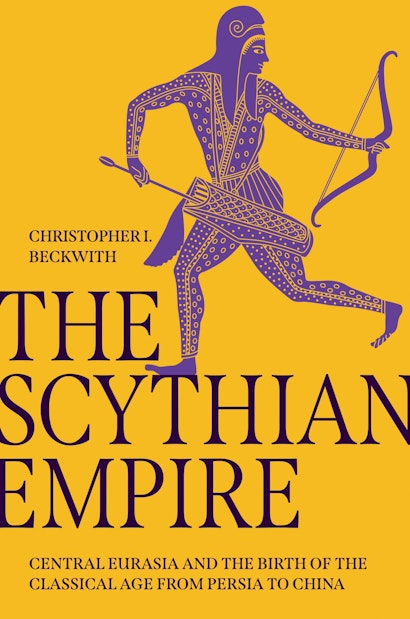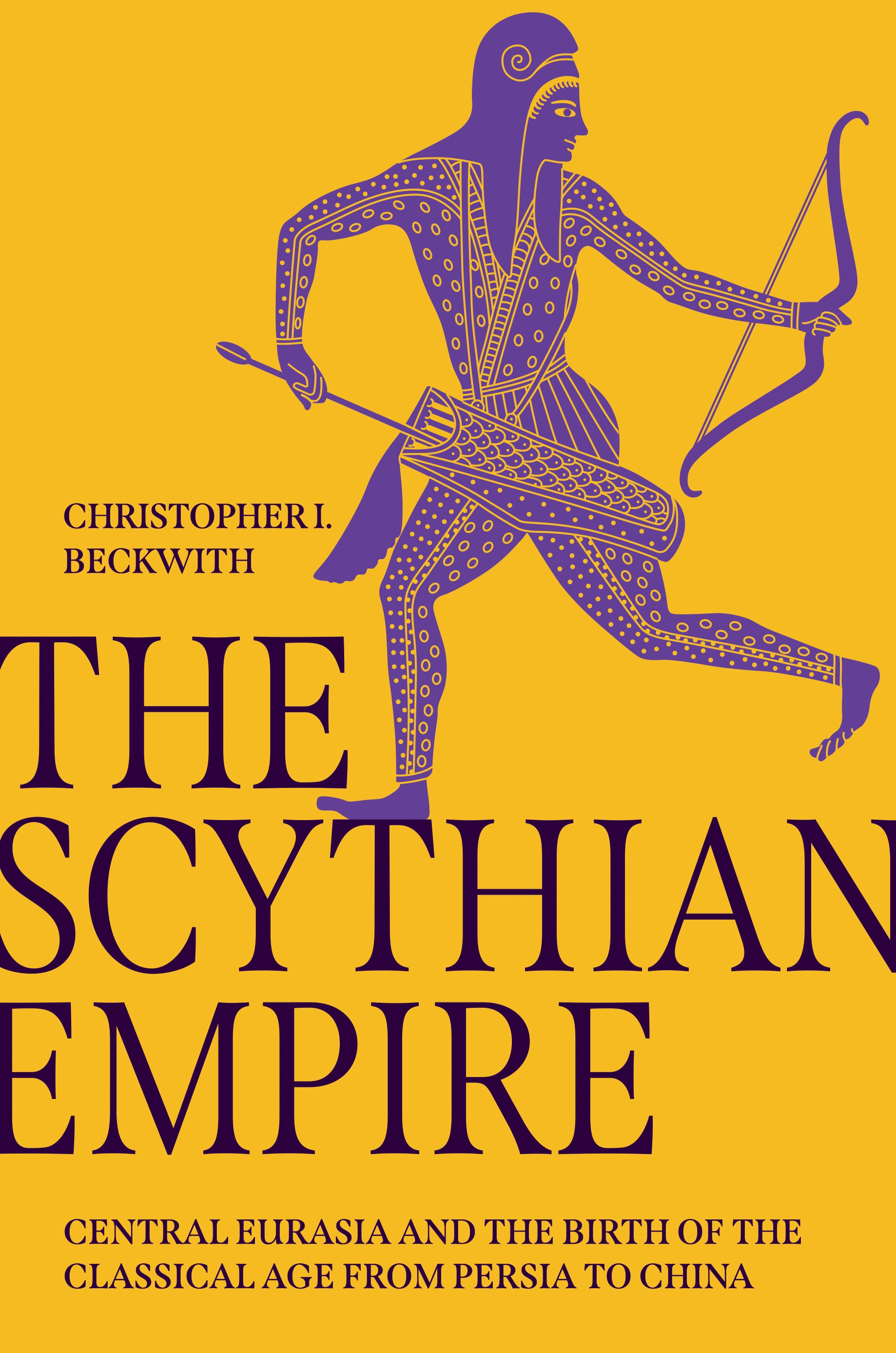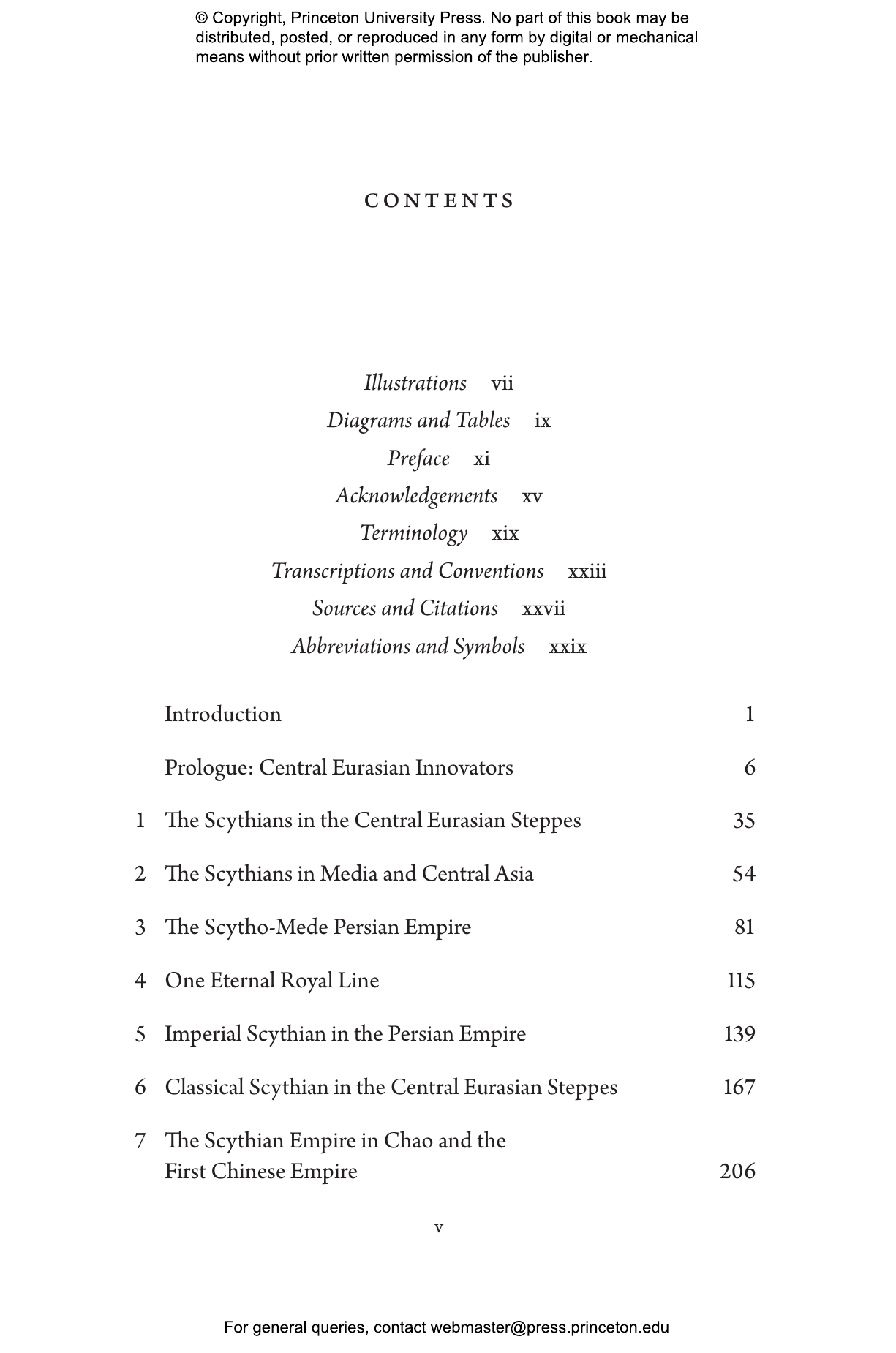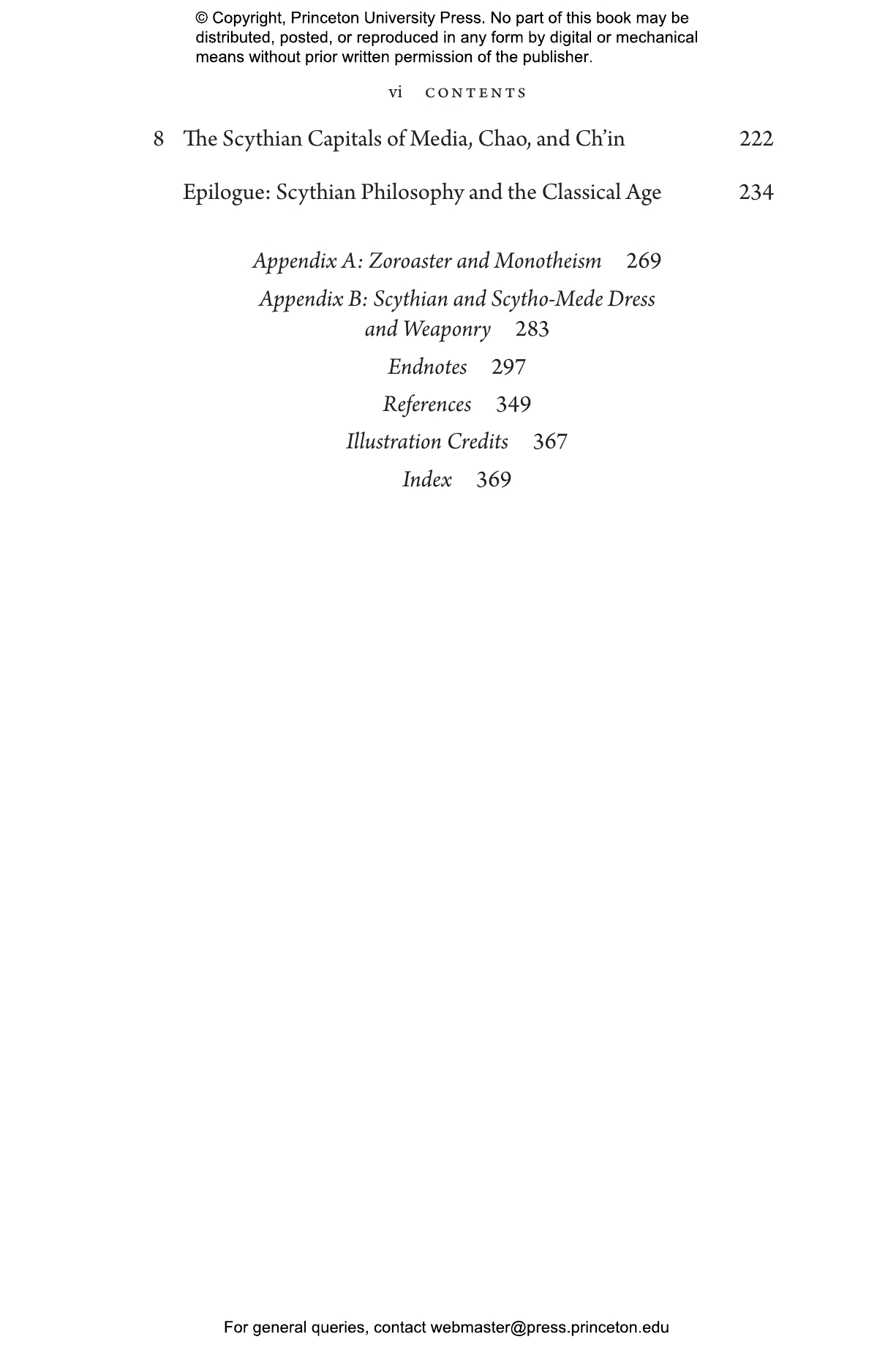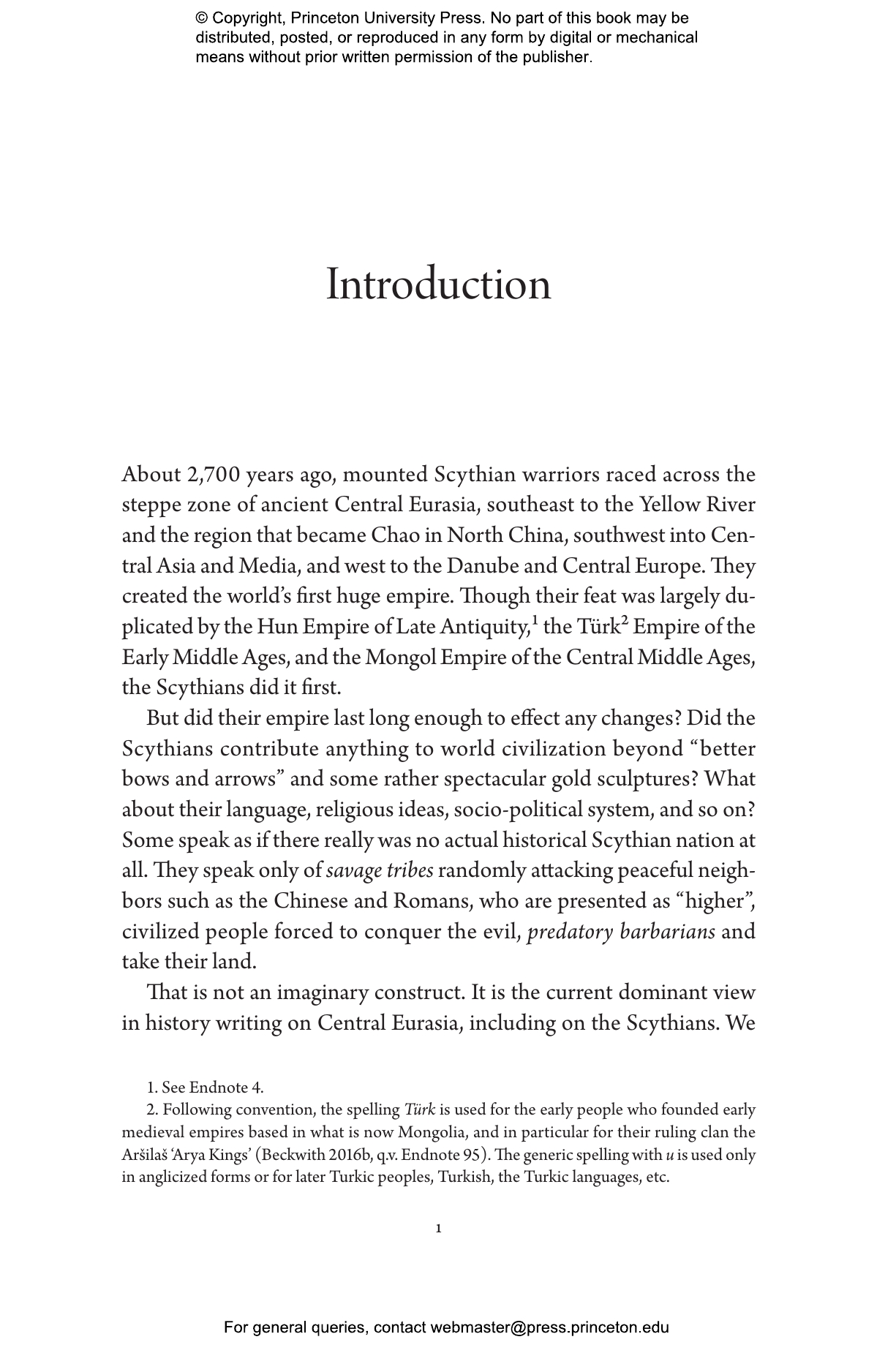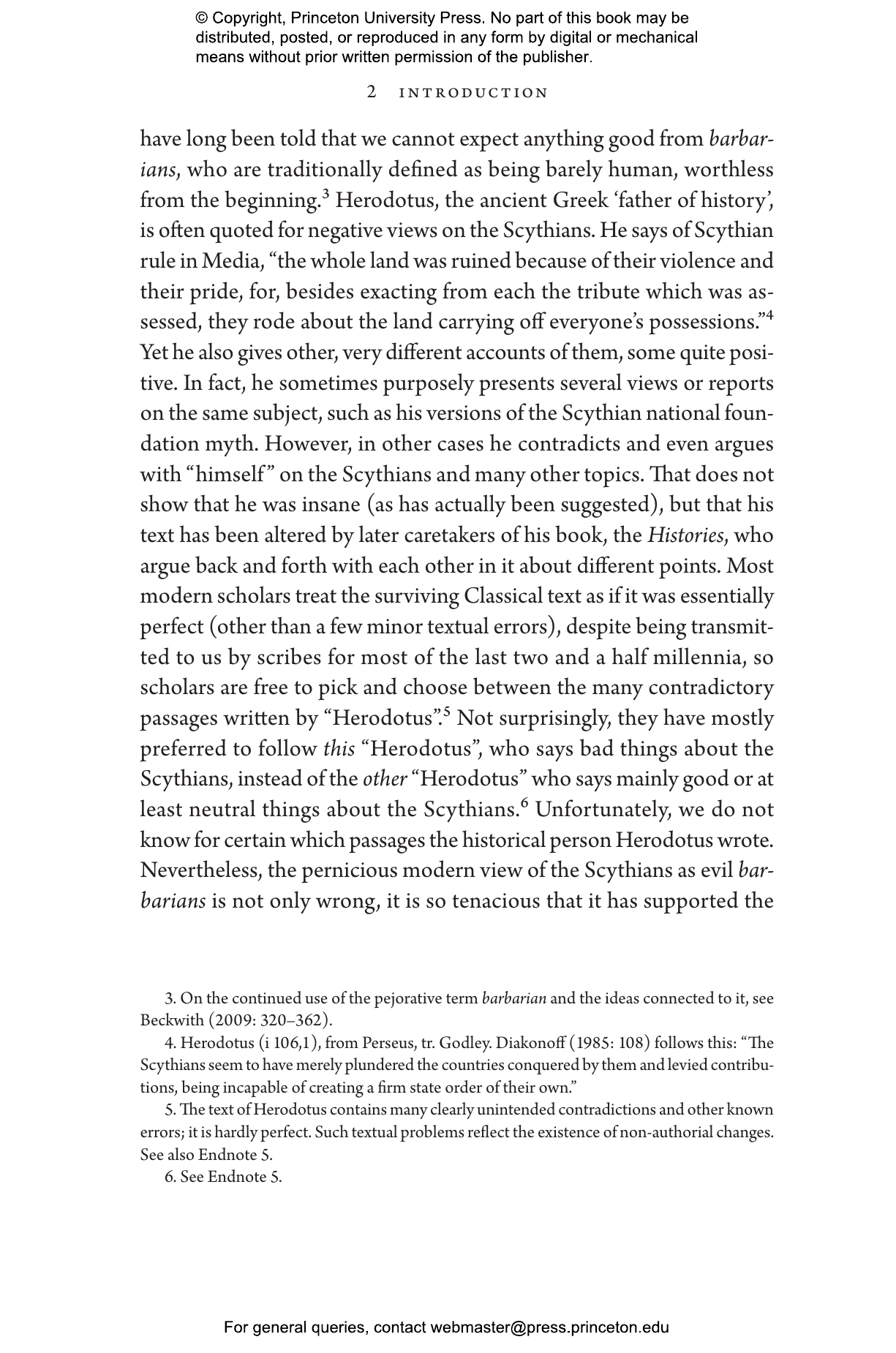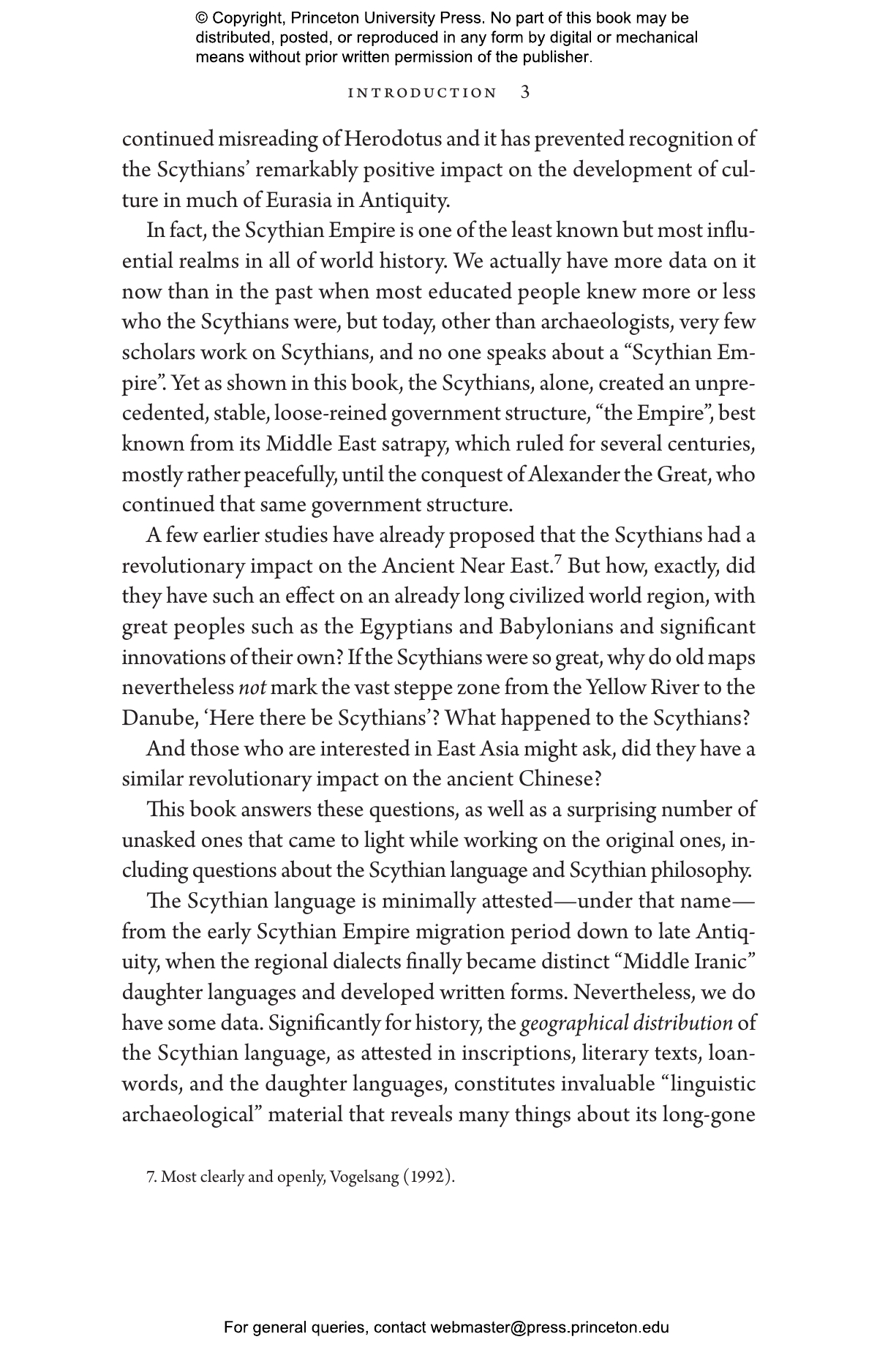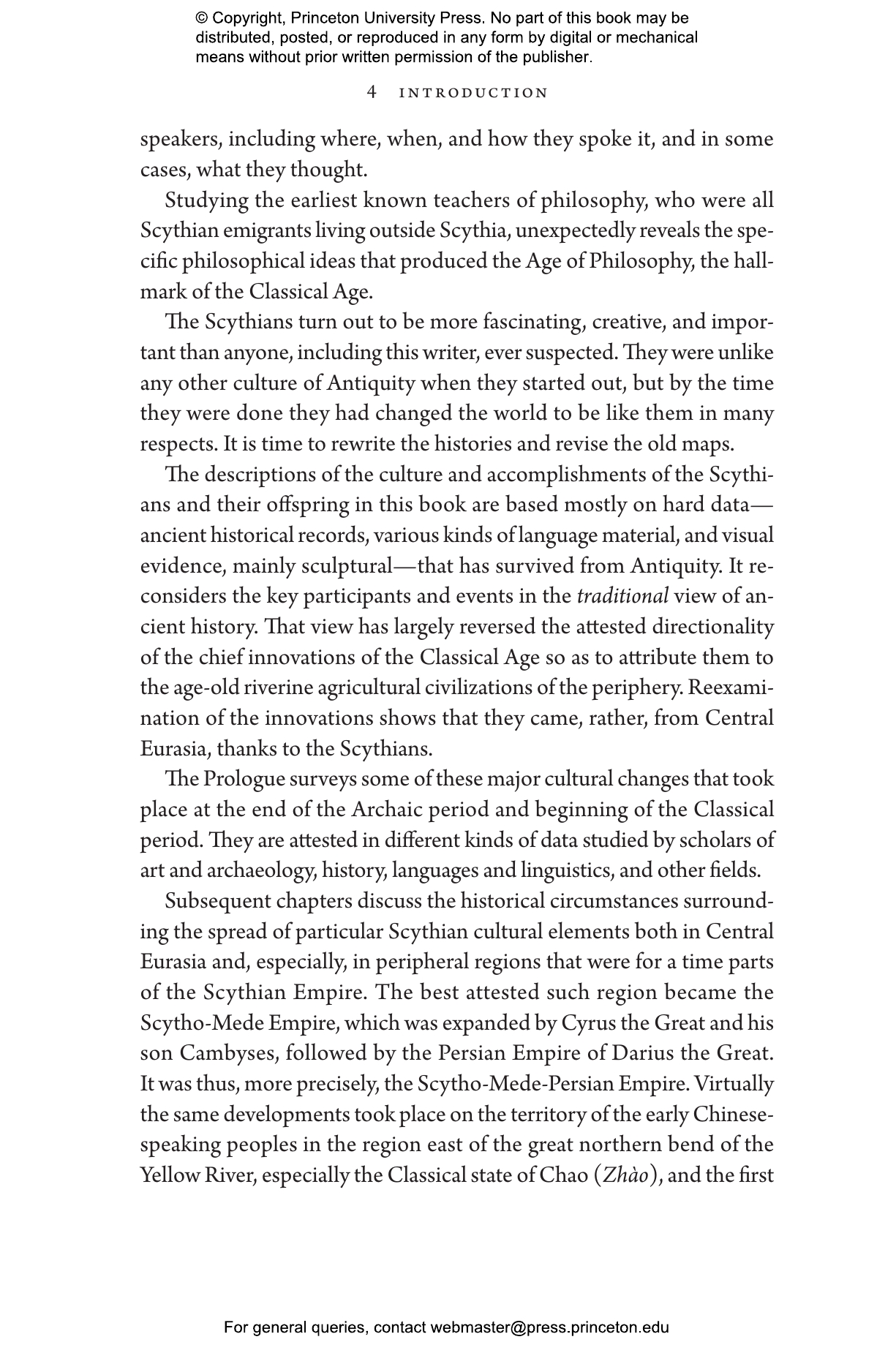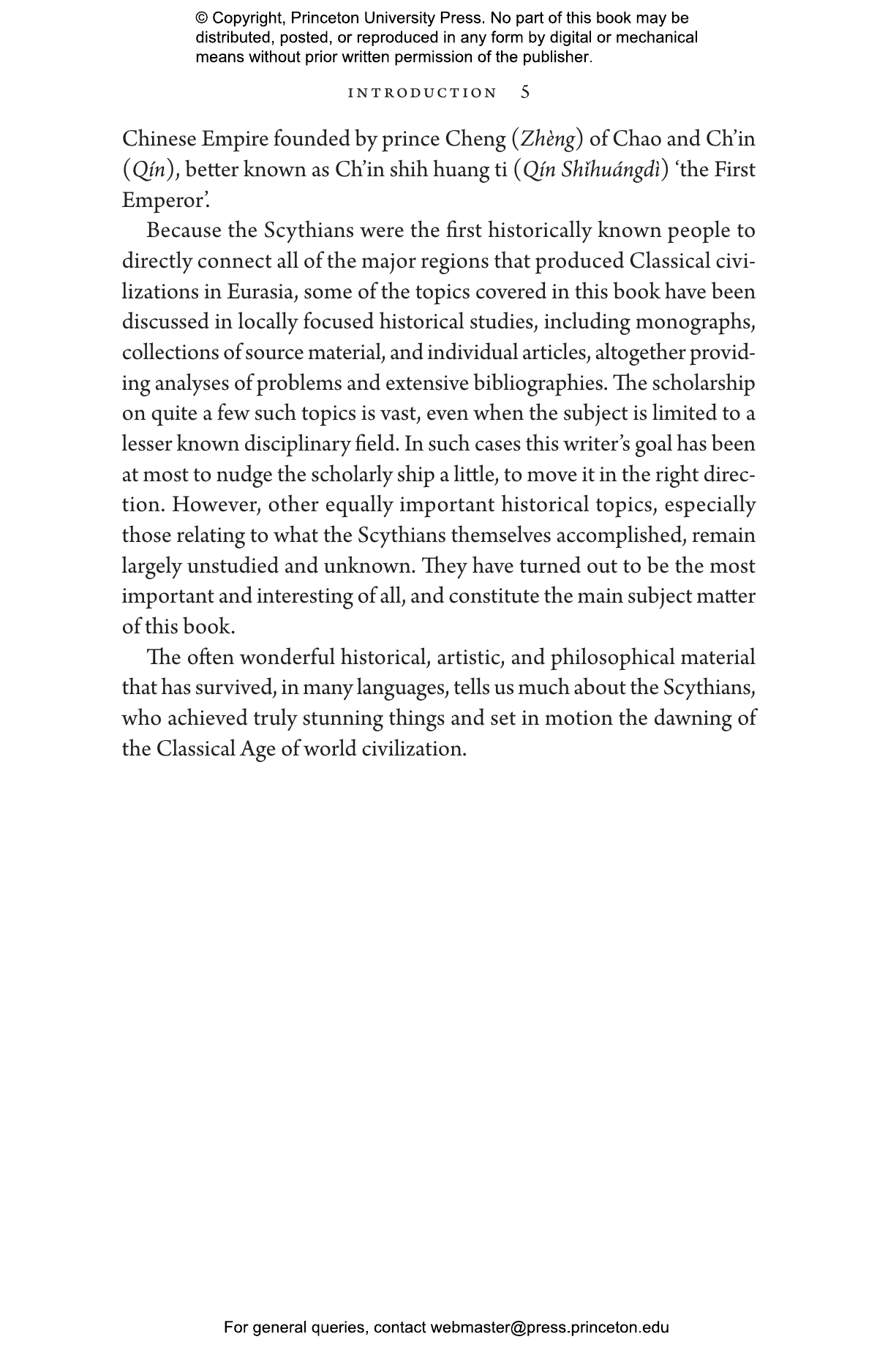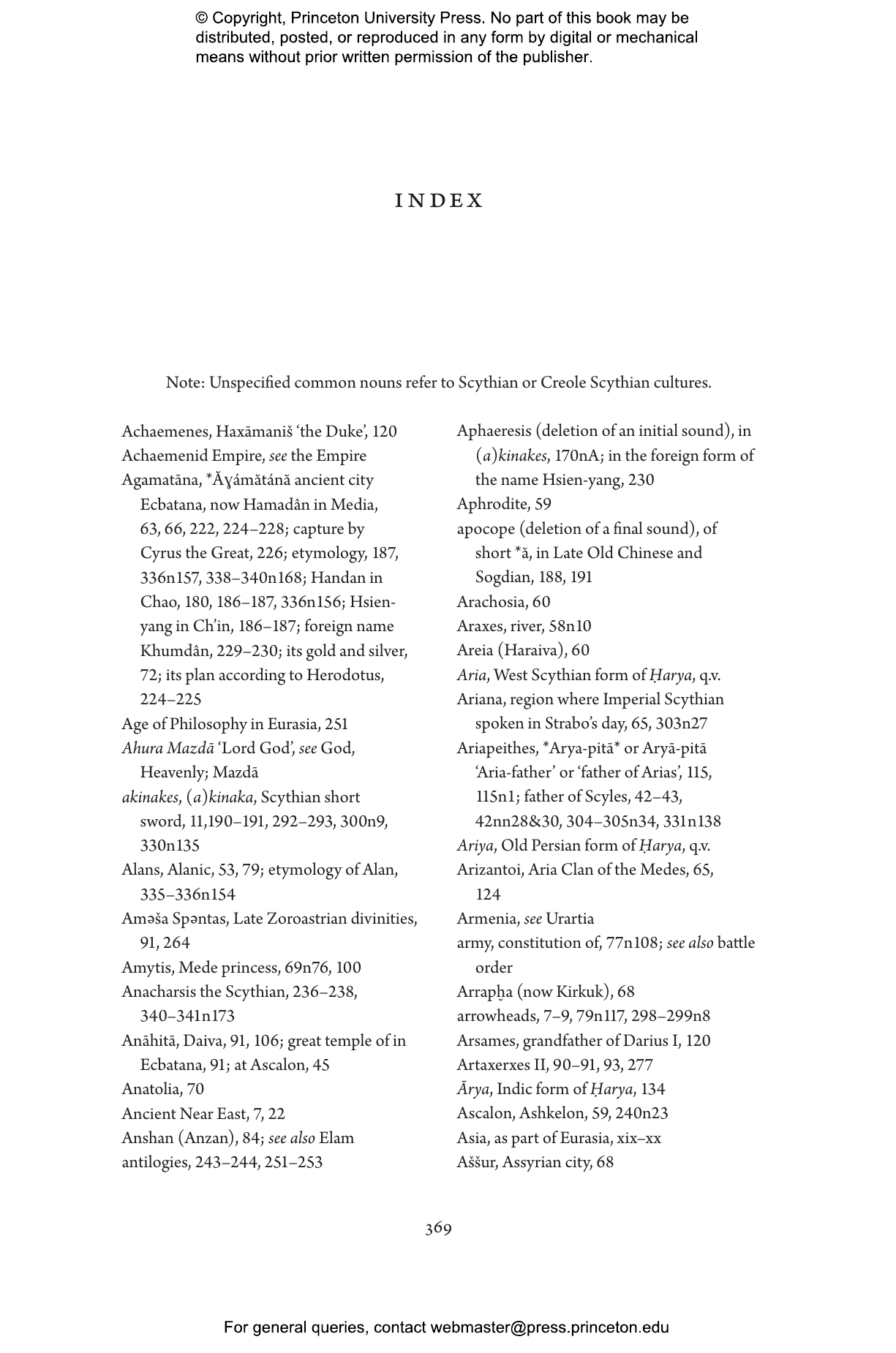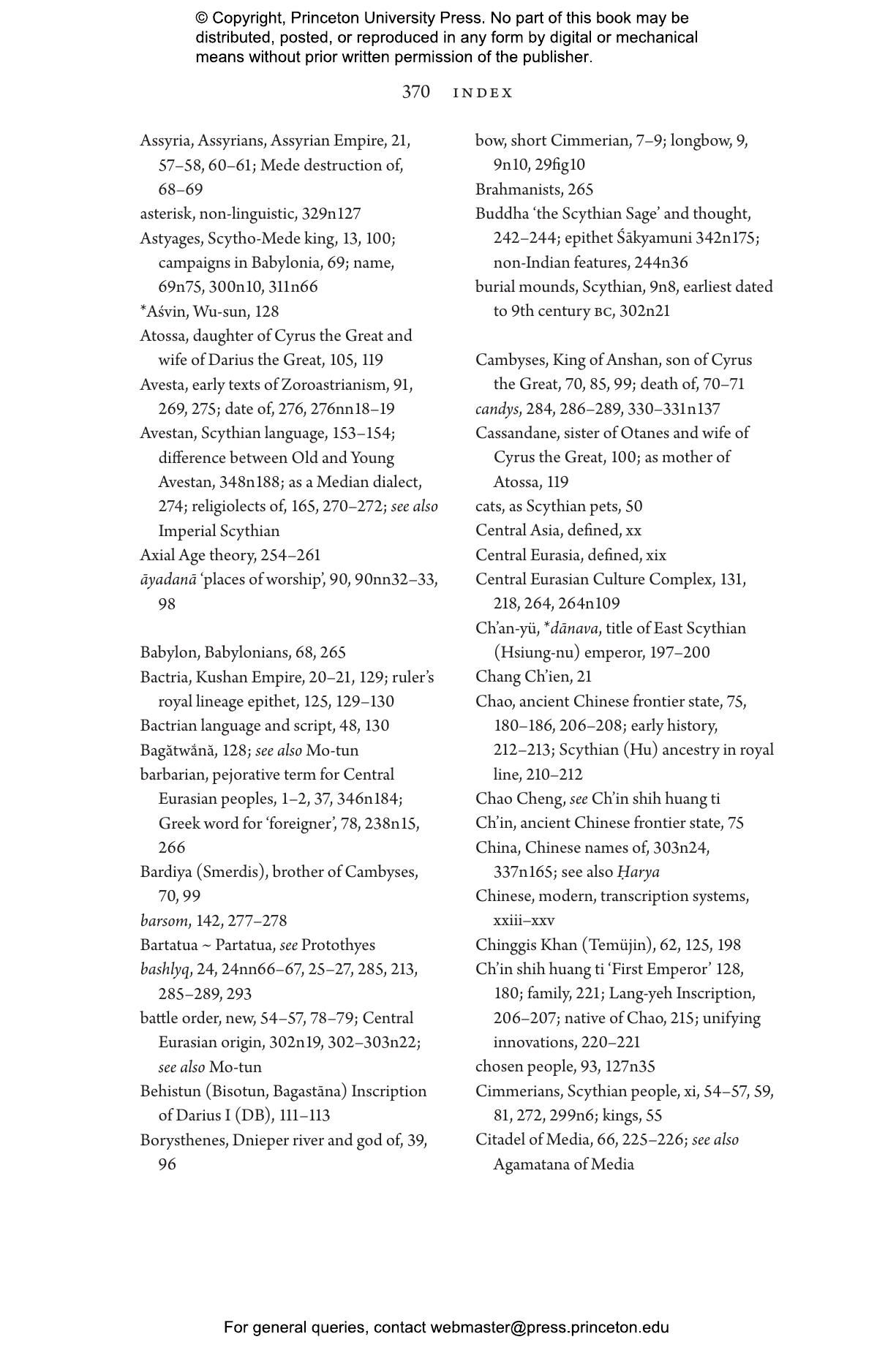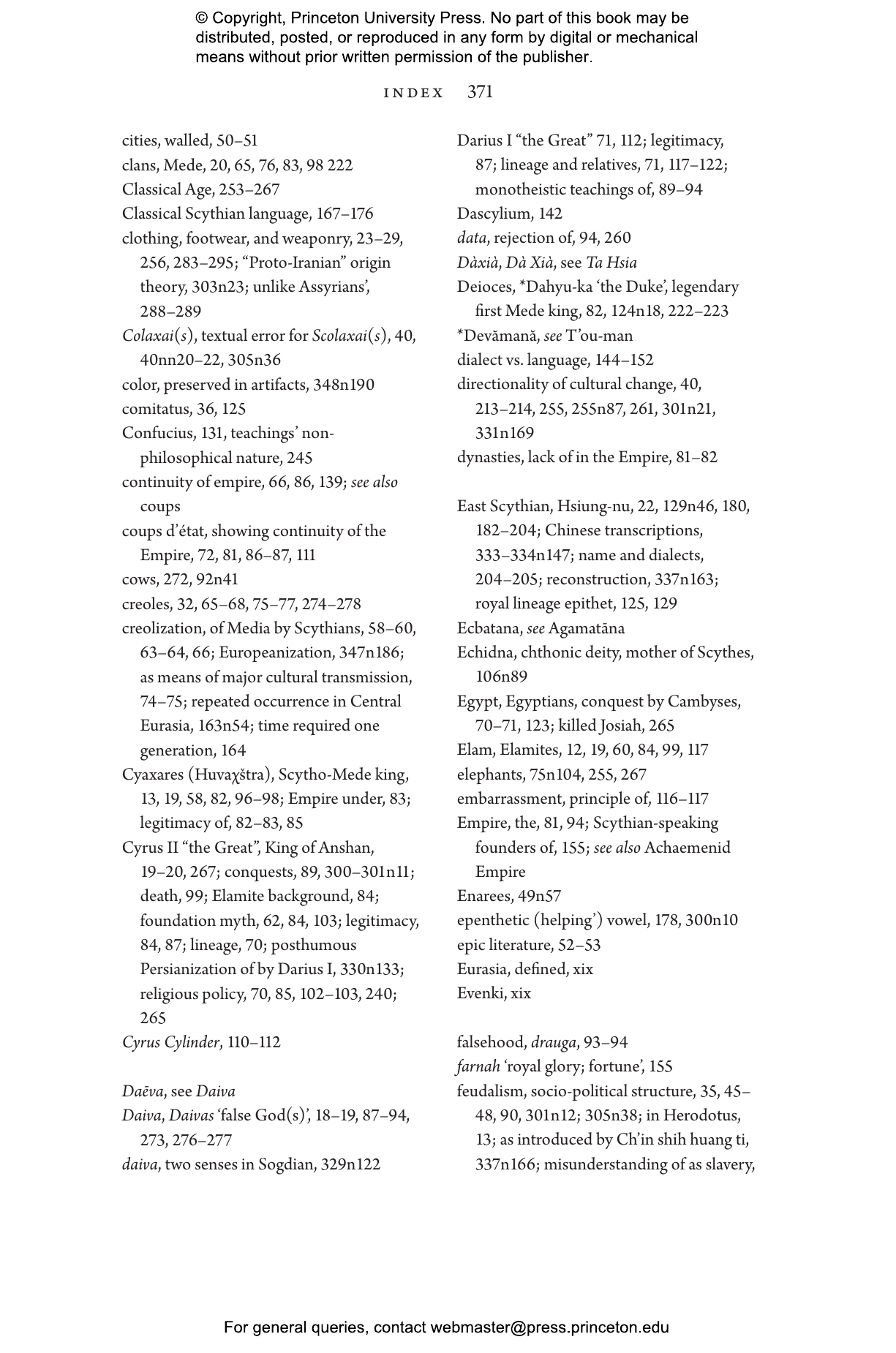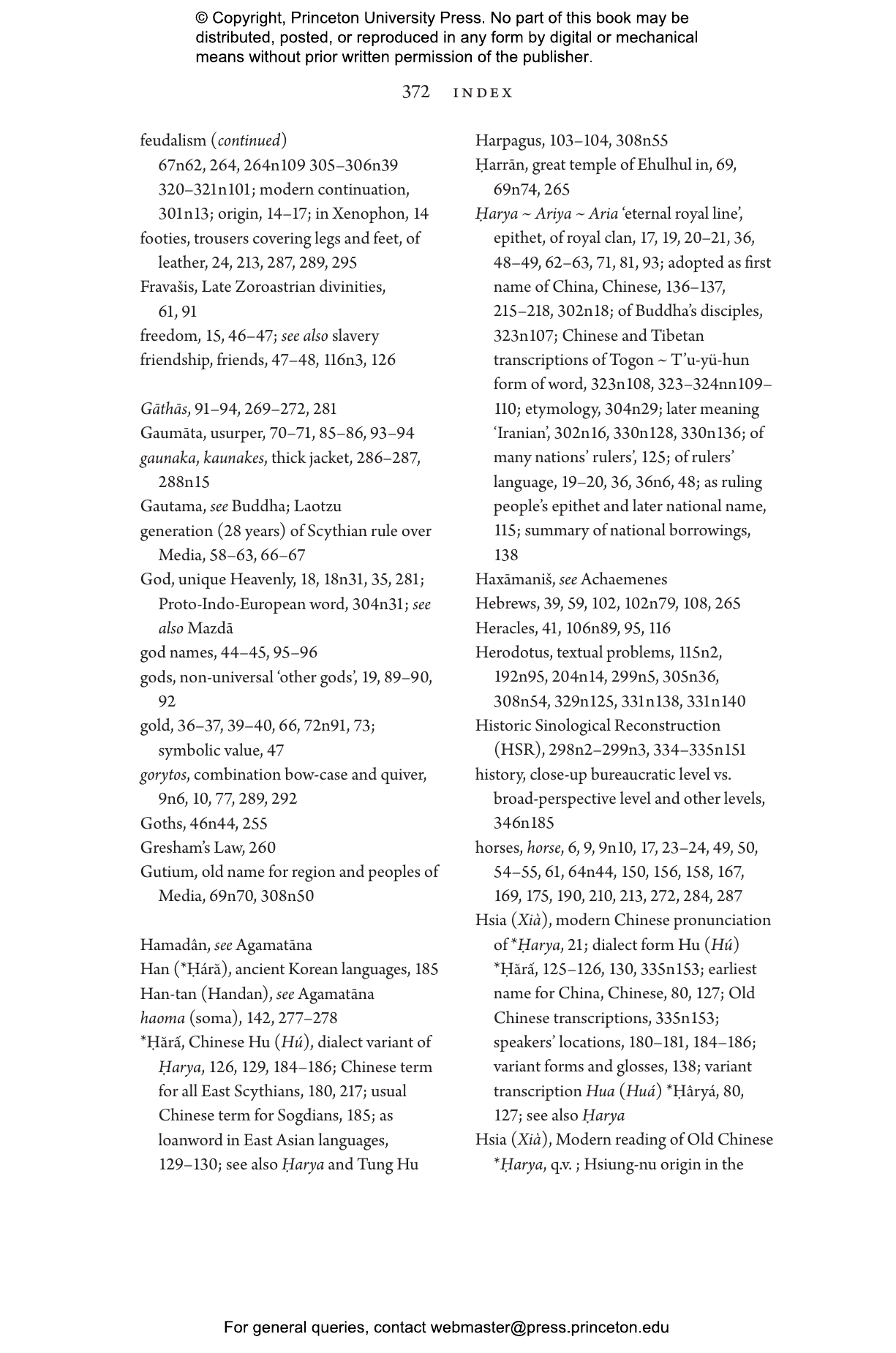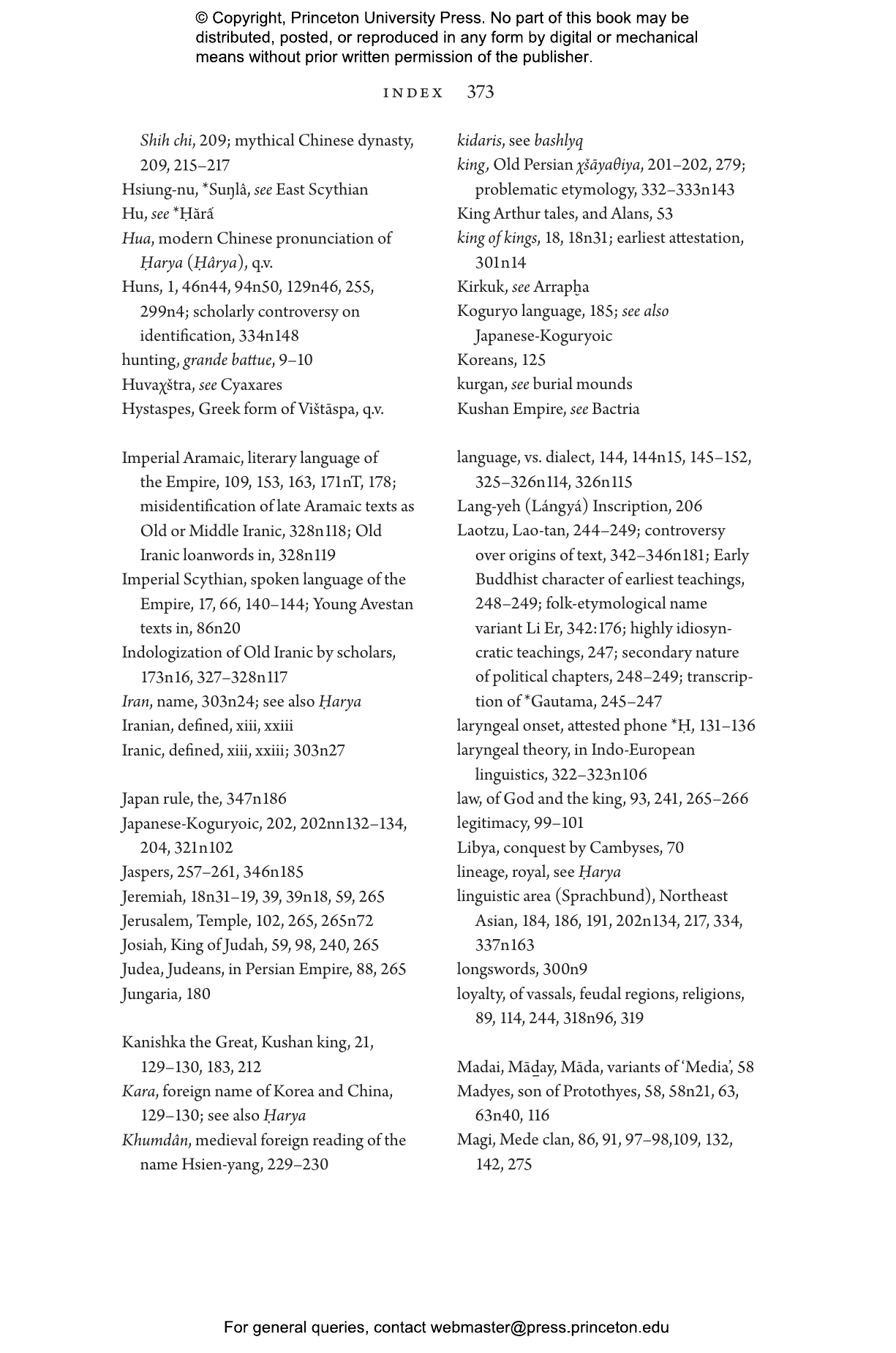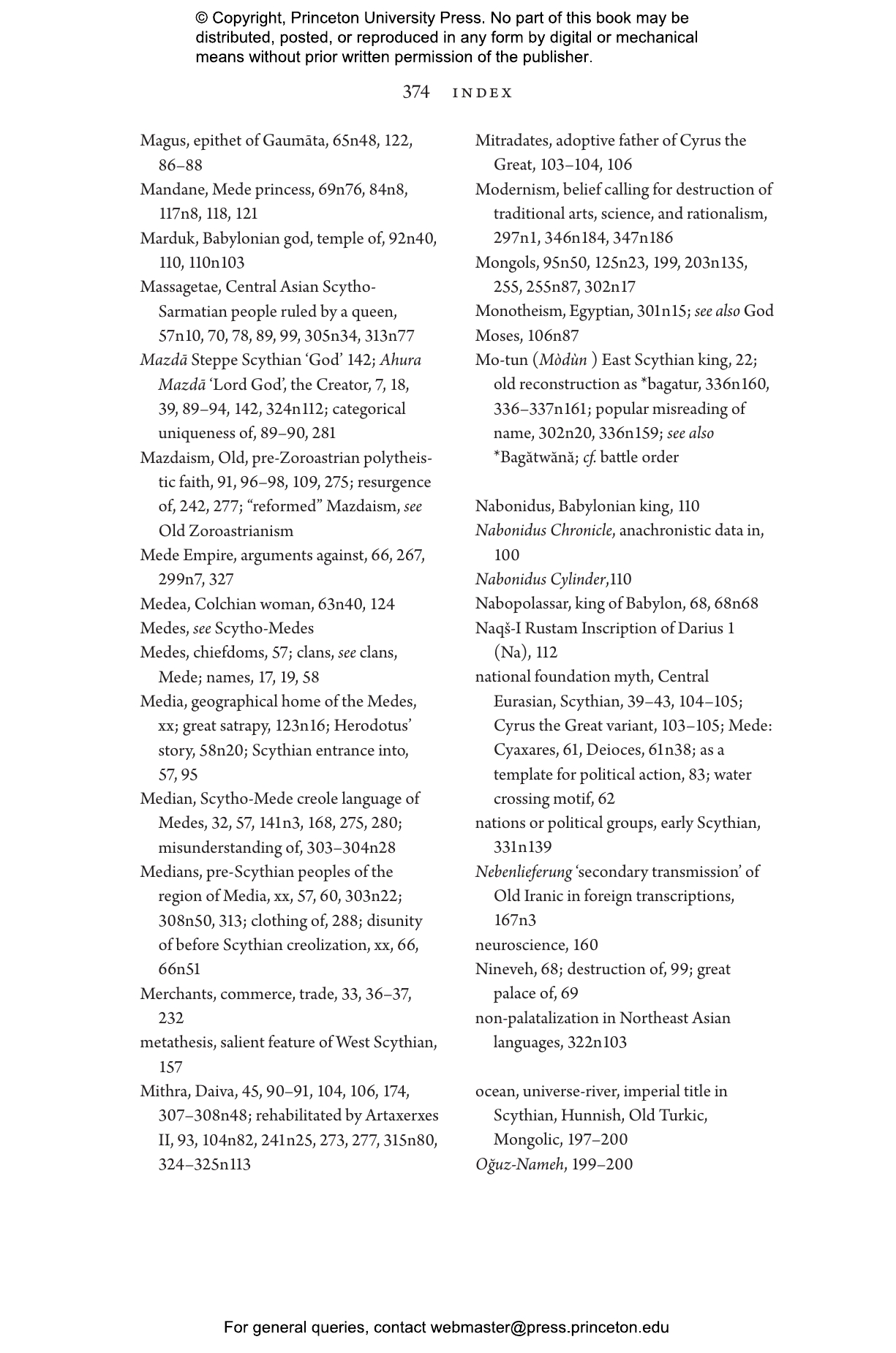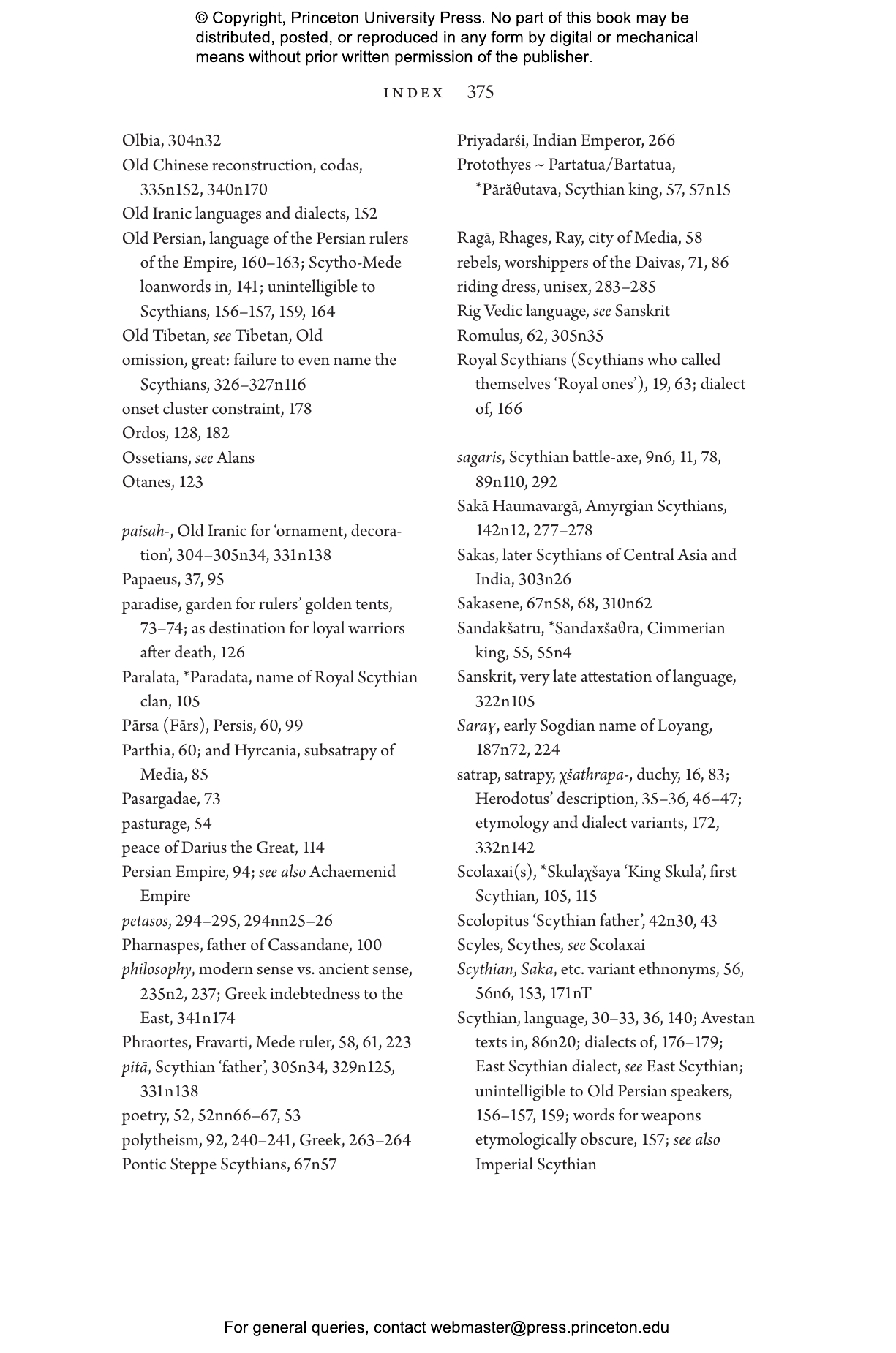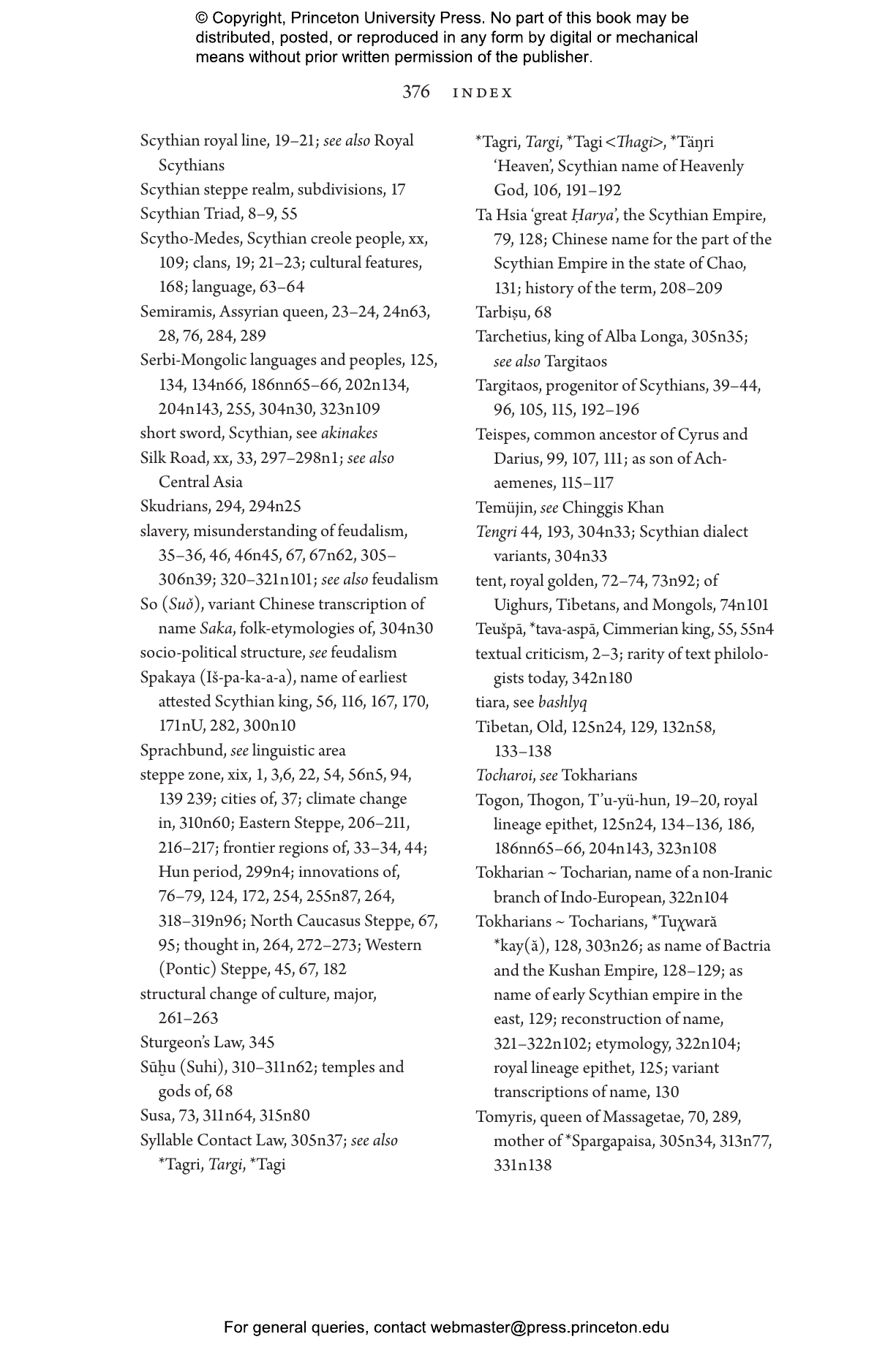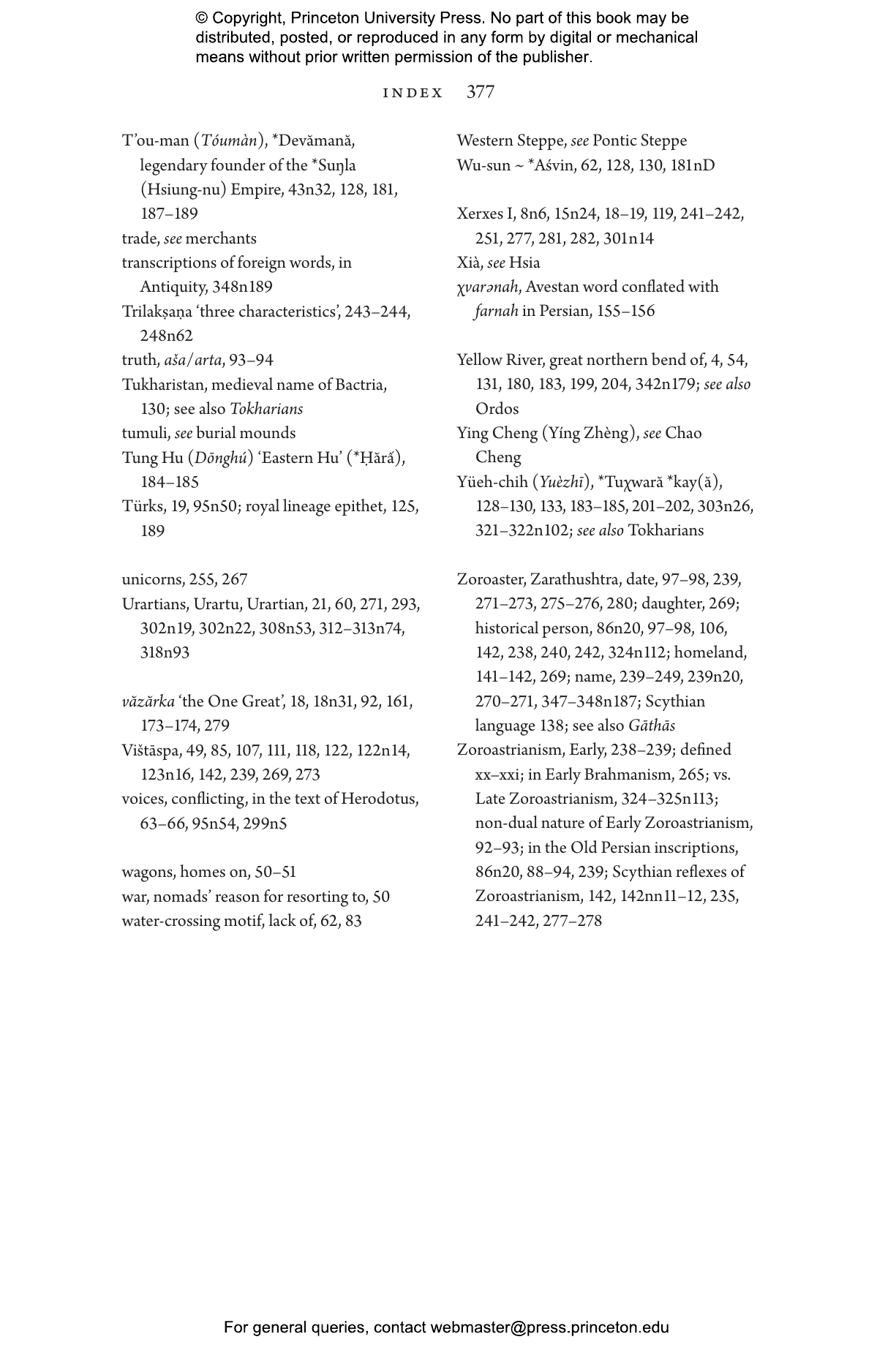In the late 8th and early 7th centuries BCE, Scythian warriors conquered and unified most of the vast Eurasian continent, creating an innovative empire that would give birth to the age of philosophy and the Classical age across the ancient world—in the West, the Near East, India, and China. Mobile horse herders who lived with their cats in wheeled felt tents, the Scythians made stunning contributions to world civilization—from capital cities and strikingly elegant dress to political organization and the world-changing ideas of Buddha, Zoroaster, and Laotzu—Scythians all. In The Scythian Empire, Christopher I. Beckwith presents a major new history of a fascinating but often forgotten empire that changed the course of history.
At its height, the Scythian Empire stretched west from Mongolia and ancient northeast China to northwest Iran and the Danube River, and in Central Asia reached as far south as the Arabian Sea. The Scythians also ruled Media and Chao, crucial frontier states of ancient Iran and China. By ruling over and marrying the local peoples, the Scythians created new cultures that were creole Scythian in their speech, dress, weaponry, and feudal socio-political structure. As they spread their language, ideas, and culture across the ancient world, the Scythians laid the foundations for the very first Persian, Indian, and Chinese empires.
Filled with fresh discoveries, The Scythian Empire presents a remarkable new vision of a little-known but incredibly important empire and its peoples.
Awards and Recognition
- A New Yorker Best Book We've Read This Year
- A History Today Book of the Year
"The Scythian Empire is simply, dazzlingly original. . . . [Beckwith's] curiosity, imagination and learning—from the Yellow River to the Danube, from archaeology to linguistics—do what every history ought to do but few achieve: compel the reader to think."—Maxwell Carter, Wall Street Journal
"Often regarded by historians as a collection of savage tribes, the Scythians emerge as a pivotal force of the ancient world in this monumental history."—The New Yorker
"Highly recommended for all students of the Scythians and Classical Persia or China."—Library Journal
"Illuminating."—History Revealed
"Before I read this book, I thought the prophet Jeremiah had produced the best summary image of Scythians when he said of them simply that ‘They ride upon horses.' . . . Now that I have read [The Scythian Empire], I am tempted to think again, for, if he is right, Scythians were far more than riders, mare-milkers and curd-eaters; they were also administrators and thinkers."—D. B. Saunders, Classics for All
"Prof. Beckwith offers an original synthesis of the history of the Old World from the Black Sea to the Yellow River, between the 8th and the 4th century BC. . . . Beckwith's book is impressive with a large array of erudition."—Henri-Paul Francfort, Sehepunkte
"Magisterial. . . .Archaeologists should not write a word more about Scythia until they have read it."—Current World Archaeology
"Bold and controversial."—Paul Cartledge, Literary Review
"Prodigiously learned. . . .Full of hitherto unthought-of connections across the northern steppes. Not everyone will agree with Beckwith, but all will be challenged by his book which turns the classical world as we know it inside out."—History Today
“A revolutionary rewriting of the current dominant view on Ancient Central Eurasia, The Scythian Empire will deeply transform what we believed the Greek, Roman, Persian, and Chinese Classical ages were. Christopher I. Beckwith has made accessible the story of the earliest known steppe empire in what is not only a provocative rethinking of Scythian history but a fascinating exploration of their language, art, and philosophy. Interpretatively audacious, adventurous, and ambitious, The Scythian Empire will generate debates for years and make readers see the history of Eurasia in an entirely unexpected way.”—Marie Favereau, author of The Horde: How the Mongols Changed the World
“Long forgotten, misunderstood, and dismissed as barbarians, the Empire of Scythia emerges at last from the shadows of ancient history, thanks to Christopher I. Beckwith. His insightful revelations illuminate the far-reaching legacies of the nomads who roamed and ruled the vast territory from the Black Sea to China’s Great Wall. This is a fascinating story of how Scythian culture and innovations in horsemanship, archery, linguistics, technology, warfare, practical dress, and ideas not only spread across the Eurasian continent but powerfully shaped the earlier empires of Persia, India, and China.”—Adrienne Mayor, author of The Amazons: Lives and Legends of Warrior Women across the Ancient World
“Using a wide array of sources, Beckwith has produced an original, pathbreaking, and provocative book that underscores the importance of the Scythians of ancient Central Eurasia in the shaping of peoples, political structures, ideologies, and classical civilization in the eastern Mediterranean world, Greater Iran, China, and South Asia.”—Peter Golden, author of Central Asia in World History
“The first millennium BCE was a pivotal age, producing a remarkable number of key military, political, religious, and technological innovations. In The Scythian Empire, the renowned scholar Christopher I. Beckwith overturns the received wisdom that Inner Eurasia was a ‘Barbarian periphery’ impacted by these developments but rarely their agents. He cogently argues that the Scythians not only developed such ideas as monotheism and fitted clothing but also built the first megaempire. Highly recommended reading.”—Peter Turchin, author of Ultrasociety: How 10,000 Years of War Made Humans the Greatest Cooperators on Earth
